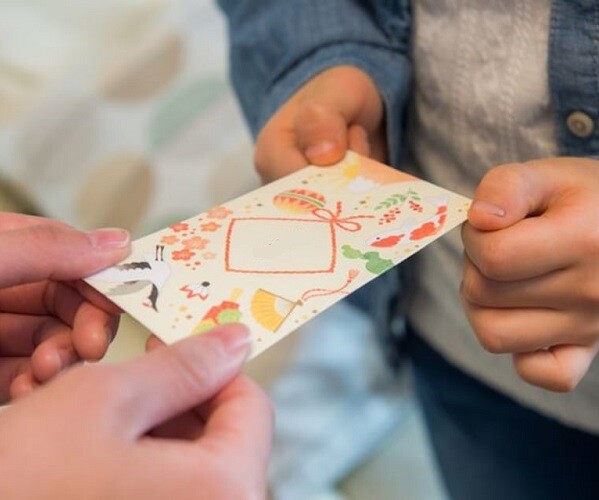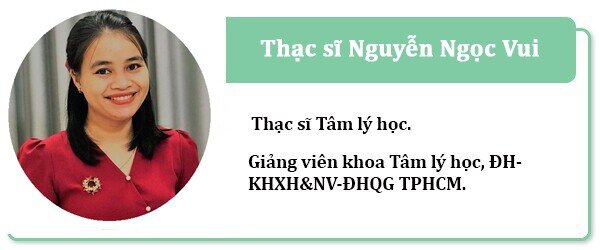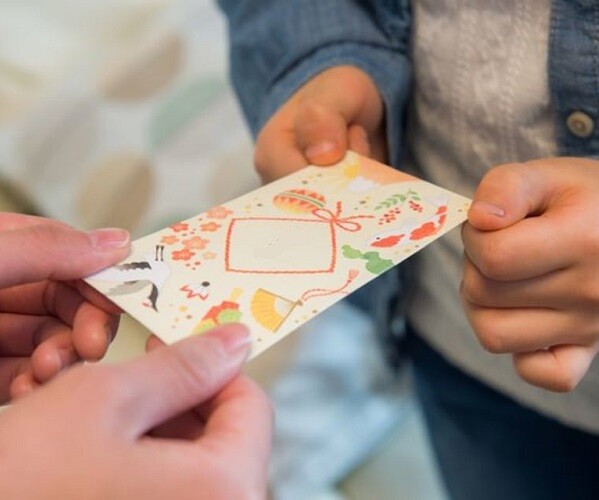Receiving lucky money is exciting for children, and opening the red envelopes immediately can be their way of expressing joy and enthusiasm.
However, in many cases, children open the envelopes immediately and show disappointment, which can put pressure on adults, making them feel like their gift is being judged solely on its monetary value.

Illustration photo.
Without proper guidance, children may misinterpret the value of receiving and using money.
There are both positive and negative aspects to children opening lucky money envelopes in front of adults. Parents and family members need to consider this and guide children reasonably, helping them understand the value of this custom.
Instead of focusing on opening the envelopes, teach children about the importance of respect, gratitude, and the deeper meaning of gifts during the Lunar New Year. This way, children will become polite lucky money recipients who understand the value of emotions and intergenerational care.
Psychologist Nguyen Ngoc Vui provides deeper insights and suggestions on how parents can react and guide their children appropriately in certain situations regarding the culture of lucky money.
 Psychologist Nguyen Ngoc Vui.
Psychologist Nguyen Ngoc Vui.

How should parents react appropriately when their children show disappointment about the amount of lucky money they receive?
One serious mistake parents make, affecting both children and the givers, is not explaining or teaching children beforehand about the meaning of lucky money culture, or that it is not allowed to open the envelopes immediately after receiving them. Therefore, children may express disappointment when they receive a smaller amount than expected.
Opening the envelope immediately shows a great deal of interest and priority regarding the money inside, and disappointment may be expressed if the amount is not to the child’s liking. However, the essence of lucky money is to spread joy and good fortune. Children should be taught to put the envelope away in a private space or ask their parents to keep it for them.
Parents should take the child aside and have a serious conversation, and in special cases, impose a punishment (confiscating the money, strict reminders…) as the child’s behavior is considered rude and disrespectful to the giver.

When children express dissatisfaction, should parents guide them on how to express their emotions politely and respectfully?
Parents should be consistent in allowing children to open the envelopes only when they are alone or with their immediate family. At this point, children can express their dissatisfaction or disappointment only to their family, but parents should teach them about the meaning behind the tradition of lucky money.
Nowadays, some people use lucky money to “curry favor,” and parents need to teach their children that this is not their family’s intention. Another common situation is when children compare the amounts given by different family members. Parents need to be stricter about this, explaining that the amount depends on the giver’s financial situation and circumstances.

Can parents give specific examples to help children understand that each lucky money envelope, regardless of amount, carries its own significance?
Parents can give examples of families with higher or lower financial statuses to help children understand that each family has unique circumstances.
Regardless of the situation, parents always want the best for their children, but financial comparisons should not be made to measure love. Similarly, a lucky money envelope, whether it contains VND10,000 or VND1,000,000, does not indicate a lack of love for the child.
Behind each envelope, regardless of the amount, are good wishes and hopes for the child’s happiness, health, and prosperity in the new year. This is what children should realize: the value of emotions and care, not material worth.
At the same time, parents should explain that some families may not prioritize lucky money due to personal reasons, cultural differences, or other customs. They may choose to express their well-wishes through gifts, words of encouragement, or precious memories instead. This does not mean that the love within that family is any less or of lower quality.

How can parents turn this situation into an opportunity to teach children about gratitude?
Before the Lunar New Year arrives, parents should teach their children about the meaning of lucky money, which is not just about receiving money but also a profound tradition symbolizing good wishes, luck, and joy for both the giver and the recipient.
Parents should instruct their children on the proper etiquette when receiving lucky money, such as using both hands to show respect and politeness. Saying goodbye and thank you teaches children to express gratitude and strengthens positive relationships with elders.
Additionally, children should be reminded not to open the envelopes in front of the givers, as this may cause discomfort and appear disrespectful. Parents should also explain the origins of lucky money, from fairy tales to the customs of different regions, fostering children’s interest and pride in this cultural tradition.

































